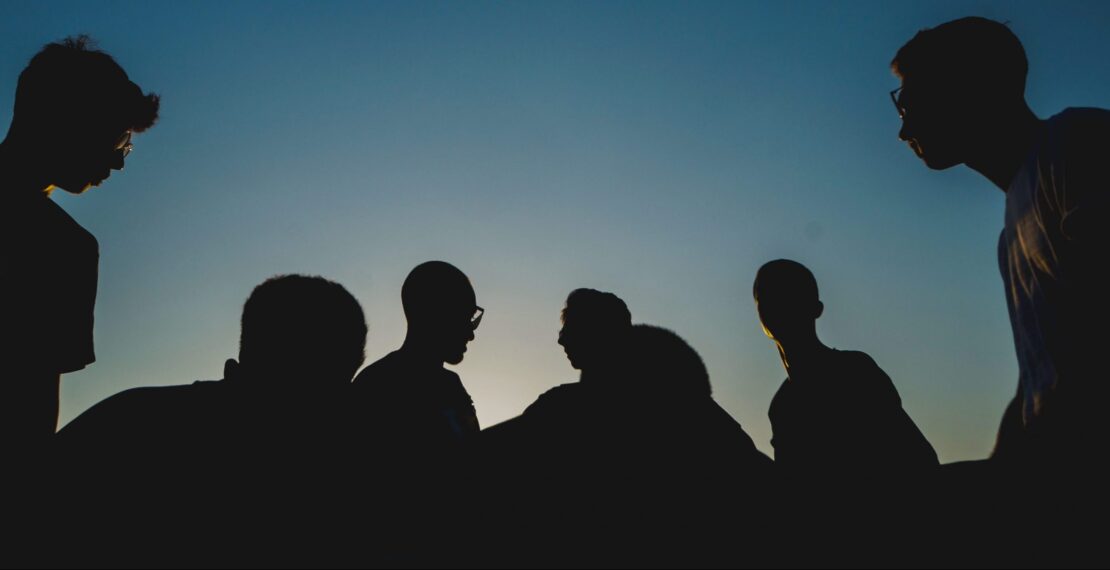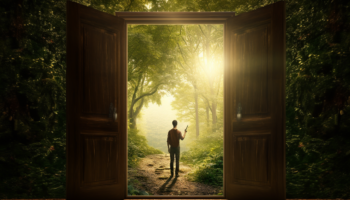“Understanding is a kind of ecstasy” – Carl Sagan
Most people get shitfaced with friends or lovers. The persona of the starry-eyed glitterbug with their heart on their sleeve is one of many interchangeable hats that your average weekend raver wears at different points over the course of the week.
They’re experientially aware of MDMA’s tongue-loosening properties, but they compartmentalize the portions of time they spend spandangled (“We talked about it, but it was when we were fucked.”) It’s not a mindstate in which anybody would choose to encounter their parents, or their children… Or so I’d assumed.
It turns out that not everybody hides their dilated pupils behind sunglasses over Sunday roasts they can’t chew. I spoke to some kids and parents who’ve shimmied past the family/drugs barrier about the highs and lows of rolling on MDMA together. Then I quizzed some experts – the psychiatrist and MDMA-assisted therapy pioneer Dr. Ben Sessa and DanceSafe founder Emanuel Sferios – about MDMA’s well-documented therapeutic effects: could these be percolating into the family chemical bonding sessions?
Listen to our podcast episode with Kyle Kingsbury talking about Parenting, Polyamory, and Accepting Paradox or Click here to read the transcript
David (son)
“That’d better not be ecstasy you’re putting in my tea!” David’s father raised an accusatory eyebrow as he reached over and took a glug.
It was a sunny Sunday afternoon in Leicester in July and Russ, 63, was relaxing after a late lunch with his three grown-up children, whilst reeling from the recent news of a diagnosis of colon cancer. “Dad,” said David, following Russ, who had drained the mug and was moving determinedly towards the garden, “It’s just MDMA.”
“He says that he didn’t feel a thing,” says David, as he talks me through what developed into a very special afternoon for family bonding. But, fast-forward to an hour after he’d finished his tea (“milk, approximately 125mg of methylenedioxy-methamphetamine and two sugars, please!”) and Russ was strolling around the garden, talking animatedly with his children about all manner of personal things he had never discussed before.
For David and his siblings, that afternoon in 2001 marked the beginning of a new era in their relationship with their father. “We spoke about his childhood and his surprisingly rogue-ish and bohemian antics as a young man. These were things we’d always never heard in conversation with our quiet, conservative and previously guarded Dad. Suddenly there was no thinking about the dicy bits we usually needed to skirt round, or what to say next.” Hugs all round. A switch had been flipped.
Over the next few months, Russ made a remarkable and long lasting recovery. He still maintains he never felt the acute effects of the MDMA, but in every conversation about his youth and his emotions (where previously he would have avoided such discussion), he continues to demonstrate what a life-changing experience it was.
Kitt (son)
Kitt, 22, from California, came home from a night out in the early hours of Saturday morning, and was surprised to find his mother, Mia, in the kitchen, still awake. “For the most part, my mom and I can communicate,” says Kitt, “but when things get personal, we suddenly don’t know what to say.”
All that was about to change: “My mom and I started to talk about what [the MDMA] was doing to me. Having never done it herself, she was curious.”
For Kitt, the come-up (when you start to feel “rushes” of pleasure as the dopamine and serotonin surges kick in) felt charged with a sense of entering the unknown: “I’ve smoked [cannabis] with my mom, but MDMA hits you so much more. It was just so weird seeing my mom start to fidget like she needed to occupy herself. It made me a feel a sense of relief, in a way, because I was already on it.”
Any self-consciousness Kitt had been feeling about his high mannerisms began to ebb away: “Watching her, I felt, ‘finally you’ll feel what I feel!’”
The domestic setting in which their experience unfolded is worlds away from resembling the medical settings in which MDMA is being trialled for prescription psychotherapy. Nevertheless, as Kitt and Mia rolled into the small hours, their conversation took a turn for the confessional, and – in the spirit of an MDMA-assisted therapy session – they opened up about topics that they’d felt previously unable to discuss.
He puts their newfound frankness down to the MDMA removing the “fear-factor”:
“My mother and I can talk for hours on any day, but never about anything personal. So on MDMA we had twenty years of stuff to get out. We were both able to ask questions that we’d never dared to ask before.”
Kitt “had really bad depression in high school and never talked to my mom about it. I dropped out, and we never spoke on it. But, while on MDMA, I suddenly said why I had felt that way at the time, and why at times I still feel so crushed.” Love was another tricky topic that they managed to explore: Kitt finally opened about his fears that Mia disapproved of his girlfriend. “Without MDMA, there is no way I would have said those things.”
That night, Kitt and Mia tackled long-held thoughts and feelings that have been buried under years’ worth of insecurities. This is the same process many people who have experienced MDMA in a therapeutic setting describe: “MDMA just pulls things out of you. It supports you. You can start looking at all your experiences and how they are affecting you,” says Alice, a Multidisciplinary Association of Psychedelic Studies (MAPS) MDMA-assisted psychotherapy trial participant.
MDMA is an empathogen: a family of psychoactive compounds that characteristically produce experiences of empathy, openness, oneness, and profound feelings of connectedness with others. Due to these properties, MDMA-assisted psychotherapy is being trialled as a treatment for post-traumatic stress disorder (PTSD), for social anxiety and for couples therapy (in cases where one partner is suffering from PTSD) by MAPS in the US.
Emanuel Sferios (DanceSafe founder, director of MDMA: the Movie)
Emanuel Sferios corroborates Kitt’s perception of his newfound bravery on MDMA, suggesting that the “reduction of fear” that users experience could be behind MDMA’s ability to facilitate conversations that transform relationships. “MDMA takes away that fear [of making ourselves vulnerable] and allows us to express what is in our heart.”
Since 1998, Sferios has been striving to reduce the potential harms of recreational ecstasy use through his non-profit public health platform DanceSafe. He has interviewed many MAPS study participants for MDMA the Movie, his upcoming documentary on MDMA’s odyssey through the clinical arena.
Looking at MDMA through the lens of its ability to treat PTSD and learning more about the nature of PTSD has convinced Sferios that, for the same reasons that it helps PTSD sufferers to open up, “MDMA can be helpful for all sorts of relationship issues,” including familial relationships:
“There are often past incidences that strongly determine emotional and psychological communication responses. Parents feel guilty for not being the best parent. Children feel judged, or unloved. Perhaps they feel unlovable.”
When family members take MDMA together, he explains, MDMA can “generate self-acceptance,” just as it can on a MAPS-trained therapist’s couch. The freedom from one’s own personal insecurities which the MDMA mindstate entails can “engender compassion and empathy for others” in children and parents alike.
However, in my search for interviewees who’d brought MDMA into the family arena, I encountered many more children who’d taken MDMA with a parent and were willing to talk about it than the reverse.
One possible explanation for children being keener to share their experiences with me than parents is that our predisposition to party often dissipates with age. The younger generation is more likely to have access to, and current expertise in taking, MDMA. As parents, women, in particular, feel that illicit substances such as MDMA may sit uncomfortably at odds with the image of “responsibility” that comes with parenthood, as Narcomania author Max Daly explores in his discussion on why women worldwide take fewer drugs than men.
Sue (mother)
Not so for Sue, a punk rocker from Norwich. Sue is the mother of Dave, 24, and Eddy, 16. For her, one of the most important parts of raising children is “not being a hypocrite,” a philosophy that Sue extends to every dimension of parenting, including talking honestly about her own use of cannabis and MDMA:
“I don’t take [MDMA] very often now, I’d say three or four times a year.
But some of the best, most beautiful experiences of my life have been on Class A drugs, and they wouldn’t have been the same experiences without them. It would be irresponsible to live my life one way and ask my kids to behave in another.”
How did Sue’s own parents navigate the topic of drug use when she was a teenager? “They were old-school and very, very traditional. Especially in their views on nights out and sex; drugs were out of the question!” Sue has taken the opposite approach. For her, the idea of keeping such an important topic off limits would feel wrong, particularly a topic where she has safety advice to impart.
Talking about a substance together, of course, is very different than taking it. For Sue, the journey towards taking MDMA with her eldest, Dave, has been a steep learning curve about parenthood, involving many doses of self-discovery:
“The first time I found out Dave took MDMA, he was 17 years old and we were on a family day out, at the beach. He came up to me and he hugged me, and he told me how much he loved me. I thought he was just being really sweet out of the blue.” She then noticed that Dave was staring at the sky, and almost slow-dancing with the sun in his tracksuit bottoms. “It dawned on me that he was absolutely fucked!”
Faced with the choice between acting like her own parents and the much more progressive kind of motherhood she has gone on to explore, Sue’s reaction, in the moment, created a beautifully symbolic bridge between old and new styles of parenting:
“I took him to my parents’ house. I said, ‘you can see what I used to have to put up with when I was your age!’ I went out into the field to see to the campervan and I left him with his grandparents for a couple of hours- I thought, ‘that’ll learn him!”
As Dave matured into a happy and successful adult, Sue felt a growing acceptance of the idea that he occasionally uses MDMA, a dynamic which has become conducive to taking it together.
She describes idyllic scenes at campsites by the sea: “We’d take it together. You’d hear shouts of, ‘Mandy’s coming!’ She recalls a particularly endearing comment from one of Dave’s best friends, Charlie, sitting round the campfire: “I love MDMA, but I also hate it – it makes me tell all my secrets!” An inadvertently perfect homage to MDMA’s potential as a therapeutic tool.
Does Sue think drugs like MDMA should be legal?
“Of course I do: Dave and his friends know how much to take, and how to look after each other. And he knows the differences between MDMA and some of the other drugs out there.” If the safer drugs like MDMA and cannabis were legalized, Sue suggests, far fewer people would want to party with the more dangerous ones.
“Besides, there are far more dangerous things your teenagers can do than occasionally taking MDMA!”
Like riding horses and binge drinking? After twenty-four years of parenting, Sue’s thrilled that neither of her children have ever shown any interest in booze. As an adult, Dave doesn’t drink any alcohol. “Would I rather he was getting pissed several times a week, just because alcohol’s legal? Definitely not!”
The Office for National Statistics is with her: there were 8,758 alcohol-related deaths in the UK in 2015. The national charity Alcohol Concern report that alcohol misuse is the biggest risk factor for death, ill-health, and disability among 15-49 year-olds, and the fifth biggest risk factor across all ages, and it’s a causal factor in more than 60 medical conditions including: mouth, throat, stomach, liver and breast cancers; high blood pressure, cirrhosis of the liver; and depression.
In contrast, there has never been a single fatality or severe adverse reaction to a (clinically administered) dose of MDMA. Elevating the idea that alcohol is inherently harmful whereas MDMA can be beneficial in particular contexts to its logical extreme, Dr. Sessa is conducting the world’s first clinical study trialling MDMA-assisted psychotherapy as a treatment for alcoholism, which will take place in Bristol later this year.
Dr. Ben Sessa (psychiatrist)
When I asked Sessa what makes MDMA such a perfect therapeutic tool, he directed me to his latest article, which delineates how it works on the receptors and regions of the brain to stimulate its effects. These include providing the opportunity to see old problems in a new light, increasing a patient’s motivation to engage in therapy, giving the patient the capacity to reflect on traumatic memories without being overwhelmed, and an improved relationship between the patient and the therapist.
Whilst scientists have mainly focused on MDMA’s efficacy for treating PTSD, Sessa envisages these same properties will allow his soon-to-be study subjects to delve into the darkest and most painful reaches of their psyches and reckon with the traumas that give rise to their alcoholism.
When parents and children take MDMA together in a non-clinical setting, are these same properties coming out to play?
“It’s possible that they’re experiencing some of the same neurobiological processes, and something akin to MDMA’s medical benefits, particularly if they’re using it to have a good conversation. But the outcome is not monitored, there are no protocols: it’s very different to what’s going on in MDMA-assisted therapy.”
Sessa is uncompromising in his assertion that it is MDMA-assisted therapy that helps study participants, not the MDMA itself: “You’ll only actually take MDMA in two or three of the sessions, and in the other sessions you’ll talk about the headspaces that MDMA has allowed you to access.” The therapeutic program as a whole is the means by which MDMA’s potential to help you disentangle from your mental hang-ups is activated.
Although Sessa is adamant that recreational use of MDMA is riskier, and less attuned to effecting personal transformations, he says that if the substance you’re taking is actually MDMA, at a low dose, it’s very unlikely to be harmful:
“A very large number of people – around 750,000 – drop MDMA on any given weekend in the U.K. Nevertheless, the number of morbidities and mortalities that occur are relatively low; invariably down to people taking too much, knowingly or unknowingly ingesting other substances instead or as well, and becoming dehydrated, over-hydrated or overheated.”
He’s quick to point out that the risk-profile of taking MDMA decreases radically when you take it in a medically supervised setting:
“People often ask me, ‘what about the three-day comedown?’. Well, with clinical MDMA this is rare. The comedown associated with recreational ecstasy is largely down to the fact that you’ve had no sleep, you’ve been dancing all night, possibly also smoking tobacco, cannabis and consuming alcohol and other drugs. Many people don’t eat healthily to make up for what they’re putting their body through. In a study, you take it at 9am and you’re back to baseline by 7.”
The seemingly ubiquitous post-partying period where you feel like a husk of your former self, commonly called a “comedown,” is actually a compendium of malnourishment, sleep deprivation, and dehydration as well as a depletion in serotonin. This period of discomfort is not an inevitable prerequisite of taking MDMA, and is all too often unfairly blamed solely on the substance. Neglecting one’s physical well-being while using MDMA is as unnecessary as the bender itself.
Stay Safe –
Practical Tips
Studies like Sessa’s are a necessary prelude to MDMA-assisted therapy becoming available for everyone who needs it. In the meantime, if you want to get the best out of exploring MDMA with your parents or adult children, remember to:
Test your drugs: “MDMA” that has not been tested by multi-agency safety testing (MAST) is not necessarily MDMA. The only safe way to take any substance is at a known purity, in the correct dose. That’s why services like The Loop which identify mis-sold drugs are so vital. Ask your government for them. #TimetoTest
Clean up the context: Bookend your experience with healthy food and good quality rest and punctuate it with drinks of water (but not too many!). Read our practical guide to what to expect when you take MDMA, which includes tips for rolling safely.
Consider it carefully: As Russ and David’s story demonstrates, taking MDMA can have long lasting effects on the way you relate to one another. It’s important to be aware of this, and prepared for unexpected admissions and revelations to come up, as these may be difficult to process in the days that follow. Kitt warns, “you can’t take back what you say.”
Extend the love (and the learning): Being open-minded, willing to talk and accepting of one another’s opinions in general life will help you to get the most benefit from sharing the experience of taking MDMA together. Learning and sharing information about MDMA with one another – particularly if one or both of you haven’t used it before – will equip you to gain the most insight from the experience. It may be a step into the unfamiliar, but that’s doesn’t mean you have to be uninformed.







MDMA is a terrific drug but this article is more like advertising than it is honest. I was one of the early pioneers, before the ban. Sasha Shulgin helped me and my chemist friends get the precursors, and we made it. I turned on hundreds to this not yet illegal medicine. Rick Doblin got his first MDMA in my project. So did the President of the American Psychiatric Association, and Charles Schuster, who then lied to make it illegal so huge underground syndicates could profit– just like the other illegal drugs. I have stories. I know the excitement and the hype. Many successes. I also know the honest truth that while there are breakthroughs, lasting changes are rare and require more than the drug. The underground of MDMA is full of hustlers and conmen as much as any dope scene, trying to make a buck. Users of MDMA are not models of sane relationships. It is a pity what happened to this drug, how it became the most popular recreational drug in the world, and an environmental catastrophe. Let’s be honest if we are going to promote psychedelic drugs, not just commodify the sacred. A balanced article would show your sincerity.
Can you please tell us more about why you think like that? I have use the drug more than once and I can say that it did change many aspects in my current life. It’s too soon to say that the changes will be long lasting but I can do say for certain that every part in this article sound like my actual experience.
It would awesome to have you write an article about your experience, have you ever considered that?
“I also know the honest truth that while there are breakthroughs, lasting changes are rare and require more than the drug.”
Agreed, these drugs are catalysts but the real change comes from taking action over your own life. Forming sustainable habits, or complimentary practices if you will, such as meditating, exercising and journaling are important.
One must be cautious in thinking that the drugs are a “quick fix”. The real change happens when you take charge of your own life.
What’s your point? MDMA, just like most illegal drugs that have medical properties, has been vilified by the government and media. Everyone is well aware of “the darkside” and it would be redundant to include it in this article.
Anything pro-MDMA/Cannabis/etc. is going to read like an advertisement to the weak and conservative. Those with intelligence are able to make the decision for themselves, rather than be dissuaded by Nancy Reagan scare tactic lies.
i have a true love for psychoactive substances, and possess the physical + biblical knowledge to guide our development of our long awaited eternal paradise, the first step that will be necessary is organization of our self as we are one with the ultimate as our entire sentient eternity. this is jesus’ truth of eternal paradise, he will come again in each one of us who is intelligent! react responsibly, a good place to start is a social media network (facebook, google+, minds.com), it is my profession of this day + age! believe it or believe it not, i have the faith necessary in you, if you do not think that i do, go on and subject yourself to the same treatment you abuse me with in your factory farms, and the pain i’ve suffered in the wilderness, letting you know with my cries of pain. then imagine a sensible eternity of it, which i hope to end the “hell” that it is becoming. who knew? all it took to become me was your imagination…
I am currently undergoing MDMA treatment in a therapeutic setting for PTSD, and have found it amazingly beneficial. I had never used it recreationally and really can’t imagine doing so. I’m about ready to do my third session. One session a month is the protocol I’ve been using. I have made so much progress that I have a difficult time waiting for a whole month. In between sessions I practice Transformational Breath Work, which has also been beneficial.
I know so many people who could benefit from MDMA, but it’s so hard to find a qualified practitioner.
I am looking forward to when it will be legal. Too many things are taking their own lives because the trauma has overcome them.
Many thanks to Rick Doblin and MAPS for being at the forefront of getting this medicine to the people who really need it.
Hey! I don’t know if any of you would read this, seeing that all the comments were made last year. I want my parents to take MDMA. I think it will do them good and it will make them come closer. My dad is incapable of opening up, I talk a lot to him but I never get any real insights about his feelings. My mother is very open to me about how she feels and she feels unhappy about the relationship with my father. They need to talk, they just don’t know how to. And that conversaiton needs to come from love and empathy and care. I’ve talking it myself a few times, I think it’s amazing the effect it has on people who are closed up (not my case, I’m always like an open book). I know it would be great if everyone was emotionally healthy and mature, but it’s not the case and this substance can help.
Now, how do I get them to try it? They smoke weed, they know I also do. Maybe we could start of there?
Do you think it’s a bad idea and why? I’ve seen it is sometimes used in conjoint therapy.
Thank you,
A.
Good respond in return of this difficulty with solid arguments and describing
all about that.